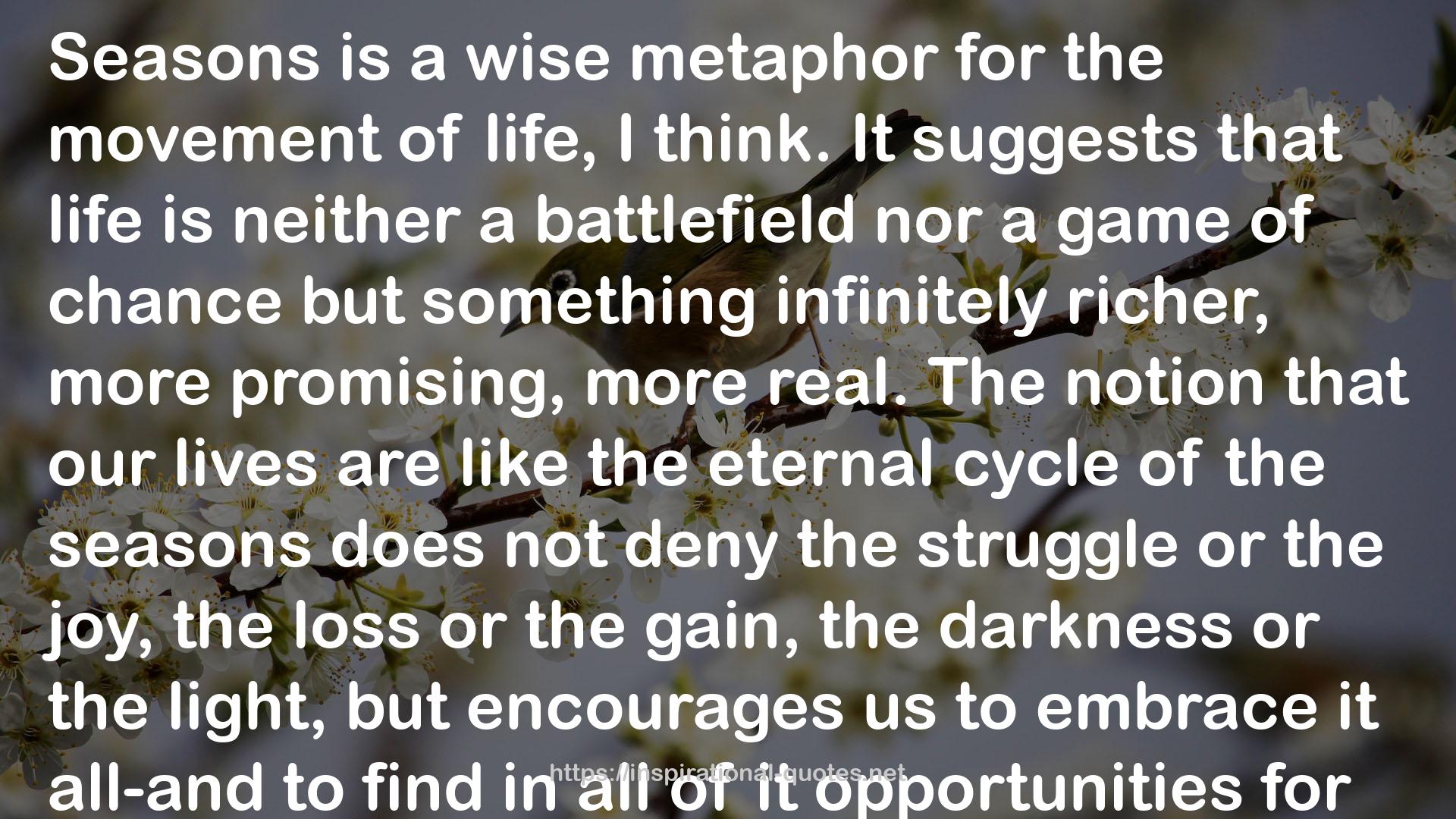" Seasons is a wise metaphor for the movement of life, I think. It suggests that life is neither a battlefield nor a game of chance but something infinitely richer, more promising, more real. The notion that our lives are like the eternal cycle of the seasons does not deny the struggle or the joy, the loss or the gain, the darkness or the light, but encourages us to embrace it all-and to find in all of it opportunities for growth.
If we lived close to nature in an agricultural society, the seasons as metaphor and fact would continually frame our lives. But the master metaphor of our era does not come from
agriculture-it comes from manufacturing. We do not believe that we "grow" our lives-we believe that we "make" them. Just listen to how we use the word in everyday speech: we make time, make friends, snake meaning, make money, make a living, make love.
I once heard Alan Watts observe that a Chinese child will ask, "How does a baby grow?" But an American child will ask, "How do you make a baby?" From an early age, we absorb our culture's arrogant conviction that we manufacture everything, reducing the world to mere "raw material" that lacks all value until we impose our designs and labor on it. "
― Parker J. Palmer , Let Your Life Speak: Listening for the Voice of Vocation
Image for Quotes

I once heard Alan Watts observe that a Chinese child will ask, "How does a baby grow?" But an American child will ask, "How do you make a baby?" From an early age, we absorb our culture's arrogant conviction that we manufacture everything, reducing the world to mere "raw material" that lacks all value until we impose our designs and labor on it." style="width:100%;margin:20px 0;"/>
 I once heard Alan Watts observe that a Chinese child will ask, "How does a baby grow?" But an American child will ask, "How do you make a baby?" From an early age, we absorb our culture's arrogant conviction that we manufacture everything, reducing the world to mere "raw material" that lacks all value until we impose our designs and labor on it." style="width:100%;margin:20px 0;"/>
I once heard Alan Watts observe that a Chinese child will ask, "How does a baby grow?" But an American child will ask, "How do you make a baby?" From an early age, we absorb our culture's arrogant conviction that we manufacture everything, reducing the world to mere "raw material" that lacks all value until we impose our designs and labor on it." style="width:100%;margin:20px 0;"/>